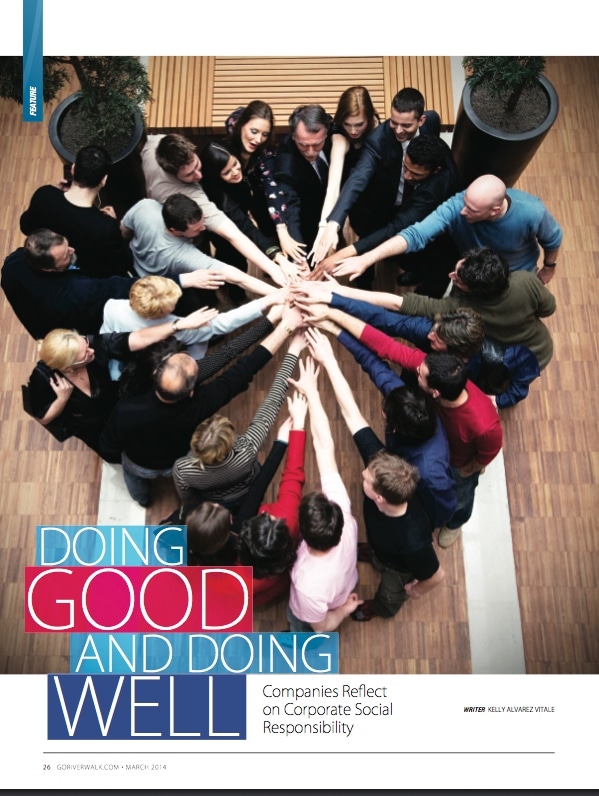With the recent release of Giving USA’s philanthropy report, which indicates that companies gave over$18 billion to charities in 2012, companies and nonprofits can reflect on all of the good work done by corporate philanthropy. Instilling a culture of corporate philanthropy often takes time, however these three philanthropy initiatives show how companies have turned “doing good” into “doing well.”
Employee Volunteerism = Happy Employees
Studies have found that companies save millions when their employees are happy. More importantly, trends and research indicate that companies with structured employee volunteer programs have a workforce that is happier, more productive and satisfied with their job and have an increase in positive attitude and moral.
Last year, City National Bank was recognized for having one of the best employee volunteer programs. In 2012 alone, employees volunteered over 17,000 hours to local community projects. The company empowers employee involvement by providing up to three hours per month paid time off to participate as a volunteer, and a grant of up to $500 annually for nonprofits where employees volunteer more than 20 hours during the year.
When companies offer employees an opportunity to volunteer and to be involved in their community, employees find a balance of success and meaning in their careers, which translate into happy employees.
Strategic Philanthropy = Loyal Consumers
Target attracts guests just as unique as its stores. From a desire for style and value to an appreciation for shopping in a store that gives back to its communities, their shopper is a 46-year-old educated mother with a median household income of $55,000. It should be no surprise then that Target made one of its major funding priorities education. One cannot pass through a store without seeing signs that Target gives more than $3 million each week to communities across the country and are on track to give $1 billion to education by 2015.
And while their prices are higher than their competitors, 50% of global consumers said they would be willing to reward companies that give back to society by paying more for their goods and services (44% in the U.S. and 38% in Canada) and that’s where Target wins.
Volunteer Assignments = Emerging Markets
Some global companies, like IBM, have become very forward thinking when it comes to volunteer programs and CSR efforts. They send employees on one-month volunteer assignments to developing countries so that these underserved communities can have their problems solved. More importantly, IBMers receive leadership training and development, and IBM identifies emerging markets and global leaders. Volunteer assignments give employees a different perspective on issues facing communities around the world. Not only do these employees offer unique solutions to these underserved communities by using their corporate knowledge but also can incorporate local ideas when exploring new markets.
Providing this unique opportunity and benefit attracts star quality students entering the workforce, improves the skills of their current employees and more importantly, is a less expensive source of market research.
It was not so long along when corporate philanthropy was questioned by company executives and stakeholders; however, if properly executed philanthropy can serve as another business strategy and tool.
Check out the article in Go Riverwalk Magazine, page 26







